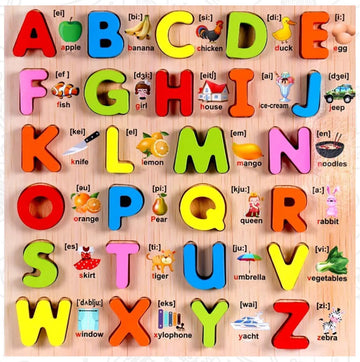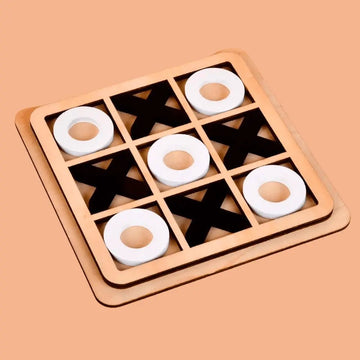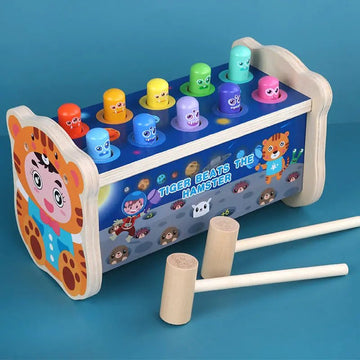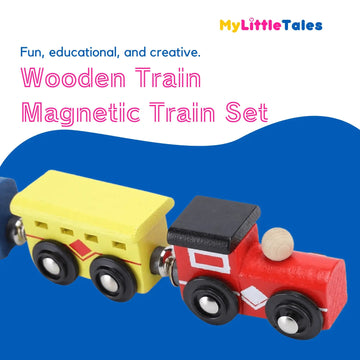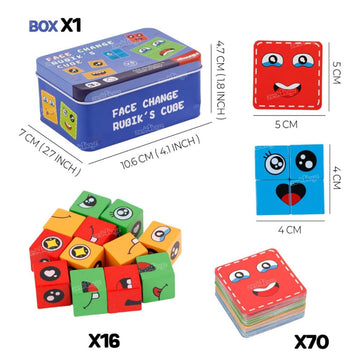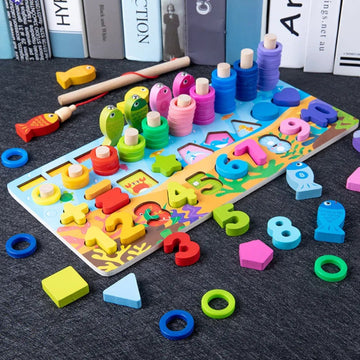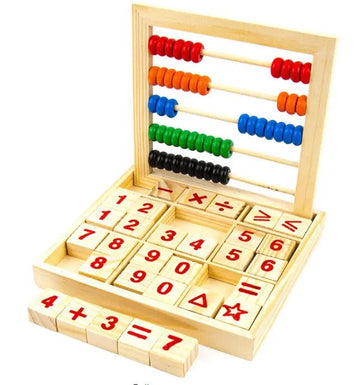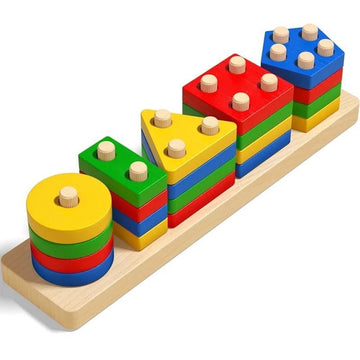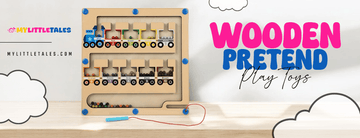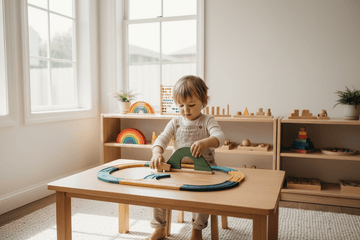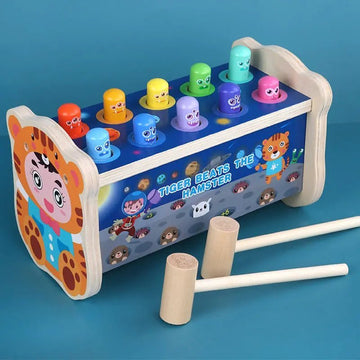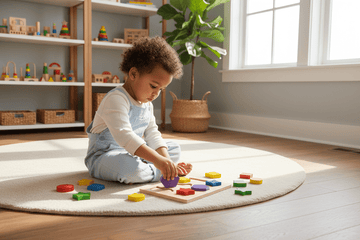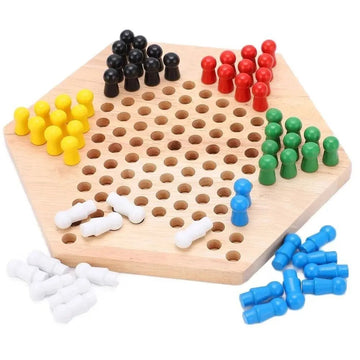A child's early years are a determinative period for language and intellectual advancement. It is then that small minds start to learn faster, shaping the building blocks of skills they will continue to use for the rest of their lives. Among the best and most enjoyable ways to facilitate such advancement are children's spelling games. These game-like tools translate basic concepts into exciting challenges that bring curiosity and language development.
As educational technology and conventional instructional methods evolve, so does the recognition of how play-based learning impacts the development of children. From vocabulary development and phonemic awareness to memory enhancement and confidence building, spelling games do more than merely entertain—spelling games are standard learning tools, particularly when used in conjunction with effective, interactive tools like wooden pretend play toys.
Why Spelling Games Matter in Early Education
Spelling isn't merely putting letters in the proper sequence. It's about comprehending how words work, how they sound, and how they connect to the things around us. It is this knowledge that lies at the heart of reading, writing, and even fluent speaking.
Children's spelling games are designed specifically to activate language development by making it engaging and interactive. Making use of magnetic letters placed on a board, spelling apps, or wood letter blocks to practice hands-on, children's spelling games are utilized in order to recognize patterns, build memory recall, and enhance comprehension.
Advantages of Children's Spelling Games Regarding Intellectual and Language Development
Here are the major ways spelling games can be beneficial for your child's development:
1. Increases Phonemic Awareness
Phonemic awareness—the ability to hear, identify, and play with distinct sounds—is the basis of language development. Spelling games make known these sounds by connecting letters to the corresponding phonemes, allowing children to better understand how words are constructed.
2. Encourages Active Participation
Whereas passive learning is not active, spelling games require individuals to work actively. Kids must think, make guesses, self-correct, and try again. These types of active learning generate interest and retention, making the learning process more effective.
3. Improves Vocabulary and Word Recognition
As they learn new words in play, children learn meanings, usage, and spelling naturally. They also become familiar with word families and root words, which build on their vocabulary and language overall.
4. Strengthens Confidence and Motivation
Every well-spelled word is an achievement. Such small successes build children's confidence levels and encourage them to try more challenging spelling and language exercises. The more they play, the stronger their determination to acquire knowledge without being led by the hand.
How Wooden Educational Toys Enhance Spelling Game Experiences
Combining children's spelling games with excellent learning materials—especially wooden learning toys—guarantees an interactive, multisensory learning process. Wooden toys such as alphabet blocks, letter-matching puzzles, and spelling games improve fine motor skills while also giving children the sensory satisfaction of sorting letters out by hand.
Wooden toys, as opposed to plastic toys, offer endurance, safety, and a sense of touch that makes long-term retention more possible. The natural textures enable children to stay engaged and focused while also assisting them in developing improved hand-eye coordination and focus.
Wooden Toys: More Than Just Playthings
Indian wooden learning toys are now the first choice of parents who wish to promote positive development and growth in children aged 1-6 years. These toys are more than just toys; they are foundational education toys that promote logical thinking, problem-solving, and social and communication skills.
For example, wooden stacking blocks, shape sorters, and alphabet puzzles encourage toddlers to imagine and think logically. Coupled with the utilization of spelling games, they create a healthy atmosphere of language learning, from letter recognition by sight to sentence structure knowledge.
Different stand-alone wooden toys that complement spelling games
Adding a variety of wooden toys to playtime will assist in reinforcing your child's spelling. Some of the most helpful are
Alphabet Puzzle Boards
They help children put letters into the correct slots and develop shape and sound awareness. They encourage children to associate phonemes with visual symbols, an essential one for early reading.
Wooden Letter Blocks
These are great for building words hands-on. Children are able to rearrange letters to build different words, practicing spelling and phonics hands-on.
Wooden Pretend Play Toys
Together with spelling games, Wooden pretend play toys like kitchen play sets or dollhouses with objects labeled (e.g., pan, cup, door) place children in life situations where they must read and spell words. This bridges the gap between practice in the abstract and application.
How Pretend Play Develops Language Ability
Pretend play has long been recognized as essential to children's development. It not only develops imagination but also language and social ability. When wooden toys are played with by children through role-play, they narrate stories, use descriptive words, and invent dialogues. Such free use of language is a most valuable supplement to the formal instruction given by children's spelling games.
Spelling Games in Daily Life
Children's spelling games can easily be integrated into a child's routine by parents and educators. The following are some simple and useful ways to do so:
-
Morning Routine Words: Ask your child to spell words concerning their routine—bath, milk, toys, and shoes.
-
Story Time Spelling: During story time, request your child to spell easy, common words.
-
Label Game: Label household items with their names and create a scavenger hunt where kids look around for and spell them.
-
Game Night Fun: Create one night a week, spelling game nights for the family. Utilize wooden blocks or letter tiles to maximize interactivity.
Spelling Games as a Foundation for Future Learning
When used on a daily basis, spelling games for children are more than early language tools. They are a great stepping stone for a lifelong skill at literacy, enabling children to develop analytical minds, formal thought, and even early writing skills.
This is also enabled when combined with integrated learning tools like wooden imitation play materials that not only present language development but also improve communication skills, empathy, and social behavior.
My Little Tales: Where Wooden Toys Spark Learning and Language
Unlock the joy of learning with My Little Tales—India's favorite brand for sustainable wooden toys that bring screen-free play to life as a delightful and learning experience. With specially designed spelling games and imaginative play sets, we spark curiosity, hone language skills, and facilitate holistic growth in children in the 1-6-year-old age group.
Painted with non-toxic, child-safe paints and environmentally friendly materials, our toys are safe, durable, and timeless. Be among the 500,000+ satisfied parents who like My Little Tales to enchant learning and make it worthwhile in the early years.
Final Thoughts
In a world where screen learning is the status quo, it's a welcome and helpful thing to return to hands-on, sensory-rich learning tools. Children's spelling games, combined with wooden learning toys, offer a multi-dimensional approach to early education. They help build essential language skills in a way that's enjoyable, effective, and hugely interactive.
From puzzles and letter blocks to dollhouses and make-believe kitchens, wood toys create an environment in which children can explore, imagine, and learn simultaneously. As an interested parent eager to provide your child with rich ways to develop early literacy, list spelling games. Don't wait anymore; visit our official site at My Little Tales to get the best and safest learning toys for your kids today!

